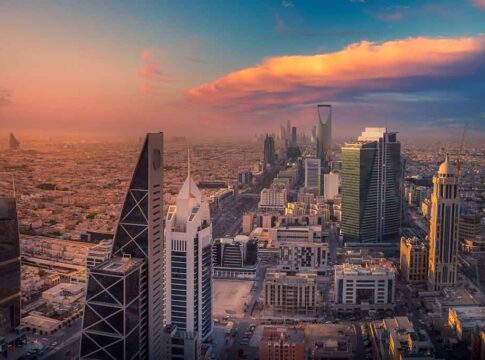President Donald Trump delivered a powerful speech condemning interventionist policies in the Middle East while securing massive economic deals. Trump’s enthusiastic reception in Riyadh underscores the strong relationship between Trump and the Saudi royal family. How does Trump’s approach differ from previous administrations?
Trump’s Grand Reception and Economic Windfall
President Donald Trump received a lavish welcome in Saudi Arabia, with Crown Prince Mohammed bin Salman personally greeting him at the airport, breaking protocol to highlight their strong relationship. The visit culminated in massive economic agreements totaling $600 billion, which could potentially create up to 2 million American jobs across various sectors.
Among the key deals secured was a $20 billion investment by Saudi Arabia’s DataVolt in US AI data centers and energy infrastructure, along with an $80 billion investment in transformative technologies from companies like Google, Oracle, and Uber. The agreements also included a historic $142 billion defense sales package—the largest in history—covering advanced warfighting equipment, air force capabilities, missile defense systems, and space technology.
Trump Torches Neocons & Interventionists, Emphasizes 'Peace Through Strength' Deal-Making, Markets Going 'Lot Higher' In Major Saudi Speech https://t.co/LpcL2jBuhd
— zerohedge (@zerohedge) May 13, 2025
Criticism of Interventionist Policies
During his speech at the US-Saudi Investment Forum, Trump delivered a pointed critique of Western “interventionalist” policies and neoconservatives for their failed nation-building efforts in the Middle East. He contrasted these failures with the successes visible in Riyadh and Abu Dhabi, emphasizing that peace comes through strength and smart deal-making rather than endless military engagements.
“Before our eyes, a new generation of leaders is transcending the ancient conflicts and tired divisions of the past and forging a future where the Middle East is defined by commerce, not chaos; where it exports technology, not terrorism,” Trump declared in his address. Trump also made the surprising announcement that he plans to lift sanctions on Syria, aiming to restore normal relations and give the war-torn country a chance at recovery.
⚡️OpenAI CEO Sam Altman with President Trump and Crown Prince Mohammed bin Salman inside the Saudi Royal Court. pic.twitter.com/y6q46omFoQ
— War Monitor (@WarMonitors) May 13, 2025
Vision for Middle East Peace and Prosperity
Trump highlighted his desire for Saudi Arabia to join the Abraham Accords, emphasizing how significant such a move would be for regional peace. He expressed optimism about the Middle East’s future, envisioning a region focused on economic development rather than conflict, noting that “responsible nations” in the area could transform the region if they “put aside differences and focus on interests that unite you.”
Regarding Iran, Trump departed from hardline rhetoric by stating, “I have never believed in having permanent enemies… Sometimes you need enemies to do the job, and you have to do it right.” He expressed willingness to make a deal with Iran for regional and global safety while warning of “massive, maximum pressure” if Iran continues aggressive actions, displaying his characteristic approach of mixing diplomatic overtures with strong deterrence measures.

